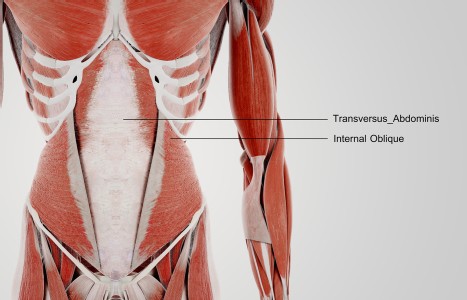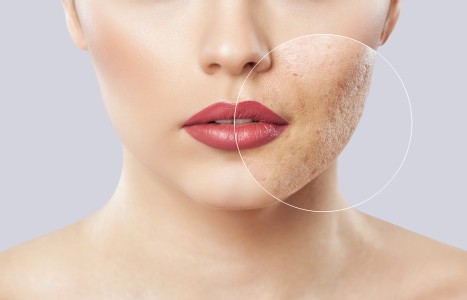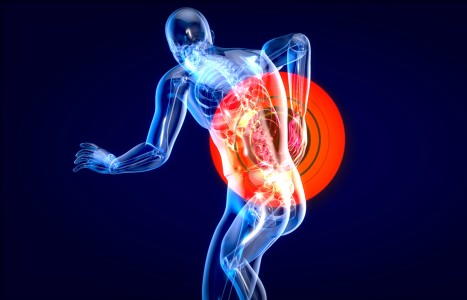TrA-2, my primary needle location, I needle 95% of the time and I think it works the best. You’ll know you have the right point location when you discover the muscle twitching when applying electric stimulation.
Why We Call You "Doctor"
Our country has just experienced the excitement of two national political conventions. Perhaps you tuned in on television and watched on or the other (or perhaps both). Politics at its is well-scripted and well-rehearsed. How do the national conventions influence you and your practice?
One of the first things that comes to mind is the inclusion of acupuncture and Oriental medicine into the Medicare system. While this decision will ultimately be made by Congress, you and your patients will make the decision as to who will go to Washington, D.C. to represent you in the House of Representatives and the Senate. It is up to you to meet the candidates and learn their opinions on complementary and alternative medicine.
Having met the candidates and listened to their ideas and viewpoints, your next step in the political process is casting a vote. Remember to vote November 7. The candidates who are either elected for the first time or re-elected for another term will be the ones whose decisions will affect your practice (and in no small way, your quality of life) in the years to come.
George W. Bush, the Republican candidate for president, said that "If a child cannot read, they cannot access the American dream." In my mind, the same idea is true in Oriental medicine. If a provider cannot read, write, speak or understand the language of physiological medicine, they cannot access the system. A provider who cannot access the system will be in a small-cash practice.
Who and what is the system in America? The system is biological medicine. The system is hospitals; health insurance; treatment on demand for chemical dependency; treatment for injured workers; treatment for personal injuries; and the Medicare program. It is time to stand together, help each other and move forward to bring Oriental medicine into its rightful place in Western culture in the 21st century.
When the profession accesses the system, the question of whether one is a doctor or just an acupuncturist is often discussed. Somehow in this process, the providers seem to be fighting amongst themselves. The question seems to be: are we or are we not doctors?
Those outside the profession appear to think we are. The opinions of those outside acupuncture and Oriental medicine have formed their opinions due to one-on-one contact with acupuncturists. Individual acupuncturists have created positions and rights for themselves in hospitals, wellness centers, pain management centers and rehabilitation facilities. In effect, they are functioning as doctors at these locations. Physicians, nurses, staff members and patients view the acupuncturist as an intriguing member of the team.
What is a doctor? In the original Latin, the word doctor meant "teacher." Do acupuncturists teach? The answer is a definite yes. In fact, at this time in the profession's evolution, we are in a momentous period of education. Education of families, friends, patients, physicians and insurance companies is of prime concern. This makes you a doctor in the truest sense of the word. A practitioner that does not teach others about his or her medicine, treatment procedures, needles and herbs does not live up to the name of doctor.
A doctor is the highest degree given or used in a profession. In European education, a person needs a PhD to be called a doctor, while in the American educational system, a medical doctor is a practitioner that provides medical services to the public. It is interesting to note that MDs received much of their training at that time by attending 100-hour weekend courses. This scenario sounds remarkably similar to many MDs who try to learn Oriental medicine today.
When one begins to analyze what an Oriental medicine provider does in their practice, we begin to realize that whether or not you are called a doctor, the profession comes under the definition of a physician. The definition from Blackwell's Dictionary says that the word "physician" is derived from the word physics. It goes on to state that a physician is one who uses natural substances to treat disease. This seems to be a good fit for acupuncturists.
Whether or not you are called a doctor, the question (or rather, the issue) is one of thinking, acting and treating patients like a physician. The acupuncturist uses the art and science of nature to treat patients and help them get to a new level of health, while the Oriental medicine provider looks at a patient and their presenting symptoms with a new set of eyes and treatment procedures.
Have you ever said to yourself, "I'm not a doctor. I'm just an acupuncturist"? The next time it happens, stop and pause for a moment. Think about your responsibilities as a professional. You help patients regain and maintain their health. You do your best to make sick people well.
That's just what doctors do.


